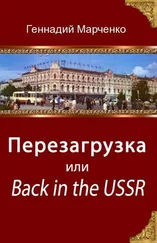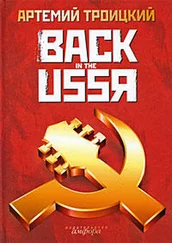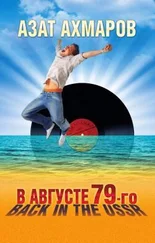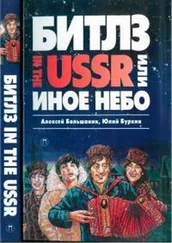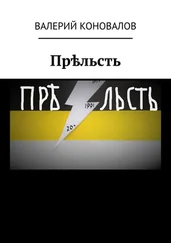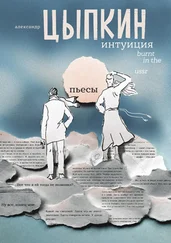Caroline Walton and Ivan Petrov
SMASHED IN THE USSR
Fear, Loathing and Vodka on the Steppes
…there is nothing either good or bad, but thinking makes it so: to me it is a prison.
Hamlet
The phone rings late on Sunday evening. A man’s voice speaks in Russian. He introduces himself as Slava, a friend of Ivan Petrov’s.
“I’m with the police at Ivan’s flat,” the voice falters. “He died this morning. We found your number in his book. The police want to know if you will interpret for us.”
Ivan is dead. The words sound strange. Like a lie.
Constable Astwood’s careful English voice explains that there will be a post mortem. Automatically, in words that come from somewhere beyond my conscious mind, I relay the information to Slava in Russian.
Slava reassures me that Ivan died in his sleep.
“Was he drinking again?”
Another pause. “He was.”
Constable Astwood is back on the line. “There is one more thing…”
“Yes?”
“I notice the deceased had a lot of books. Is there anyone who might take them? If not, the council will only burn them.”
I struggle to absorb this kindness. “Yes, yes of course. I’ll arrange it. Tomorrow. Thank you.”
* * *
I first met Ivan in 1996. He contacted me after reading a book I had written about life in provincial Russia. [1] Little Tenement on the Volga (Garrett County Press).
He was here as a refugee, he said, seeking political asylum. He wanted to talk to me. I knew where he came from and he liked what I had written.
In the early nineties I had gone to live in the Samara region of Russia where Ivan’s home town of Chapaevsk lay. My fascination with the country had been sparked by an introduction to Dostoevsky in my teens; with the fall of the USSR I was free to explore it. Samara’s military installations had closed the area to westerners since the end of the Second World War. Many parts of the region were also off-limits to locals, apart from those with special permits. I wanted to know what life had been like behind that inner iron curtain. I arrived in 1992, just after the collapse of Soviet power. Compared to Moscow and other more accessible regions, the area was slow to change.
Chapaevsk was an industrial satellite of the city of Samara. I made several trips there to visit friends, and each time I returned with my head throbbing from the polluted air. Founded in 1911 and built up around a gunpowder factory, the town began as Ivashchenko, became Trotsk from 1919 until Trotsky’s exile in 1929; and ended up as Chapaevsk in honour of the Civil War hero. It was, in my friends’ words, “a town of death” — a contaminated pit of chemical and pesticide plants, ringed by secret military installations.
“Everyone was horrified when Chernobyl blew up,” they said, “but we have absorbed this poisoned atmosphere all our lives.”
Their daughter was in hospital with a blood disorder. We would stand in the hospital grounds while she lowered a basket on a rope to receive books and foodstuffs. She was not allowed visitors for fear of infection. Later I was taken to the local orphanage, where many of the children suffered from skin diseases and serious developmental problems.
In the 1920s Chapaevsk began manufacturing chemical weapons for Germany, which was banned from making its own under the Treaty of Versailles. During World War Two, phosgene, mustard gas and Lewisite were produced for the USSR’s own use. After the war the plants were converted to the production of the now-banned pesticide lindane and its derivatives, liquid chlorine and other chlorinated chemicals. Emissions from these plants contained highly toxic dioxins. Slow to degrade, they lingered in the environment and accumulated in the food chain. In 1994 a United Nations special commission called the town an ecological disaster zone.
I was touched by the spirit of the people who lived in this forlorn, devastated region of smokestacks and phosphorescent green lakes.
“You’ve seen a lot,” Ivan said, when we first met at the Britain-Russia Centre on Grosvenor Place, “but I will tell you much more.”
A short, bearded man, he walked with the aid of a stick. His right leg scythed backwards, giving his whole body an impression of concavity. He had the squashed nose of a prize fighter, sparse teeth, and intelligent blue eyes. A crude sailing ship was tattooed on his forearm just above his wrist. In his early sixties, he looked ten years older.
“You want to know what it was like growing up there?” he grinned. “Well I’ll tell you! Do you mind if I smoke?”
We walked outside onto Grosvenor Place. Propping himself against the railings, Ivan hooked his stick over his arm and rolled a cigarette. I strained to catch his Russian above the roar of traffic. “You see,” he cupped the flame of a match against the wind, “I was born in 1934. During the years when I grew up, it made no difference which side of the barbed wire you lived on.” He leaned back and exhaled. “Prisoners in camps, collective farmers, factory workers — it was all the same.”
Across the road barbed wire clouded the walls around Buckingham Palace gardens.
“You had a choice,” he continued, “you could carve out a career for yourself as an informer or bureaucrat; or else seek a way out.”
“And what did you do?”
“I was a sailor, a meteorologist in the Siberian taiga, a labourer in the Tien Shan mountains, but first and foremost I was a drunk.” He beamed. “Not an ordinary, drink-up-your-wage-packet drunk, or even a flog-your-house-and-furniture drunk, but a vagabond and a beggar.”
I was intrigued. “I thought it was forbidden to be a tramp in the Soviet Union?”
“It was. If they caught you they banged you up. I did a few years in camps. Still, I spent long enough on the road.” He pulled an empty matchbox from his pocket and tucked his extinguished cigarette end into it: “I am Ivan the Fifth!”
“Pleased to meet you. Why the Fifth?”
“You’ve heard of Ivan the Terrible?”
“Certainly.”
“Well he was the ‘Fourth,’ so I am the Fifth. Ivan the Drunk! But I am not drinking now and I want to tell you my story.”
I had already written about the lives of people of his region: collective farmers, a wise woman who told fortunes, the new businessmen… But this man was offering to take the lid off the ‘lower depths’ of Soviet society, a world virtually unknown in the west. I had read a lot of gulag literature, most of it written by men and women from a different class of society, from the intelligentsia, or somewhere fairly close to those circles. Beside me was someone of an altogether different order.
But it went deeper than intellectual curiosity. As I stood listening to Ivan I recalled another man — also named Ivan — whom I had known in Samara. A young businessman who had been brought up in a children’s home, he had a similar enthusiasm for talking about subjects most people preferred to hide, a cheerfulness, an ability to ‘laugh through tears,’ as the Russians say. I missed that quality.
I missed the country too. Standing beside Ivan on a dusty London street, I no longer saw the red buses and black taxis. I was back on the bridge of a Volga pleasure cruiser, steering it downriver, the city on the left bank, blue steppe-land rolling away on the other. Behind me the great river wound its way back towards the gelid lakes and marshes of the north; before me it coursed for a thousand kilometres down to the Caspian Sea. Excited to have a foreigner aboard, the captain had let me take the helm. The expansiveness and exhilaration of that voyage epitomised what I loved about Russia. Life was harsher than at home but at the same time less constrained. Back then, in the early nineties, it had seemed as though anything were possible.
Читать дальше
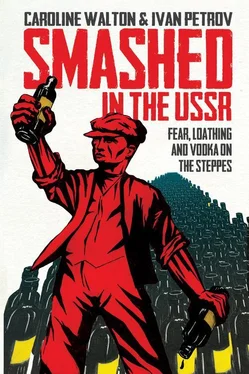

![Геннадий Марченко - Перезагрузка или Back in the Ussr. Книга 1. [СИ]](/books/53319/gennadij-marchenko-perezagruzka-ili-back-in-the-uss-thumb.webp)
